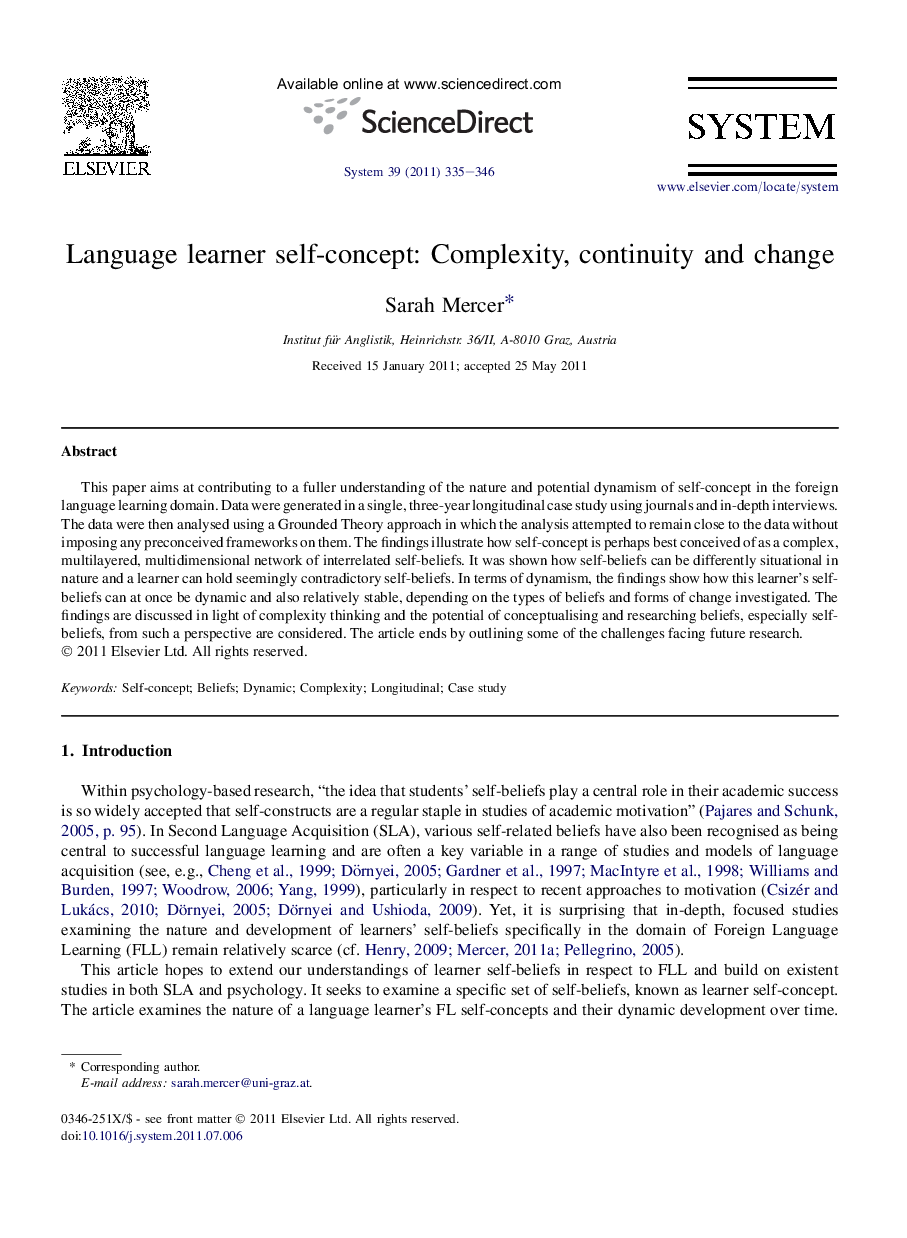| Article ID | Journal | Published Year | Pages | File Type |
|---|---|---|---|---|
| 373507 | System | 2011 | 12 Pages |
This paper aims at contributing to a fuller understanding of the nature and potential dynamism of self-concept in the foreign language learning domain. Data were generated in a single, three-year longitudinal case study using journals and in-depth interviews. The data were then analysed using a Grounded Theory approach in which the analysis attempted to remain close to the data without imposing any preconceived frameworks on them. The findings illustrate how self-concept is perhaps best conceived of as a complex, multilayered, multidimensional network of interrelated self-beliefs. It was shown how self-beliefs can be differently situational in nature and a learner can hold seemingly contradictory self-beliefs. In terms of dynamism, the findings show how this learner’s self-beliefs can at once be dynamic and also relatively stable, depending on the types of beliefs and forms of change investigated. The findings are discussed in light of complexity thinking and the potential of conceptualising and researching beliefs, especially self-beliefs, from such a perspective are considered. The article ends by outlining some of the challenges facing future research.
► Data generated in a single, three-year longitudinal case study using journals and interviews. ► Results show self-concept as a complex, multilayered network of interrelated self-beliefs. ► Self-beliefs revealed to be dynamic and stable depending on types of beliefs and changes examined. ► Conclude that self-beliefs may be conceptualised as a complex dynamic ‘self system’.
